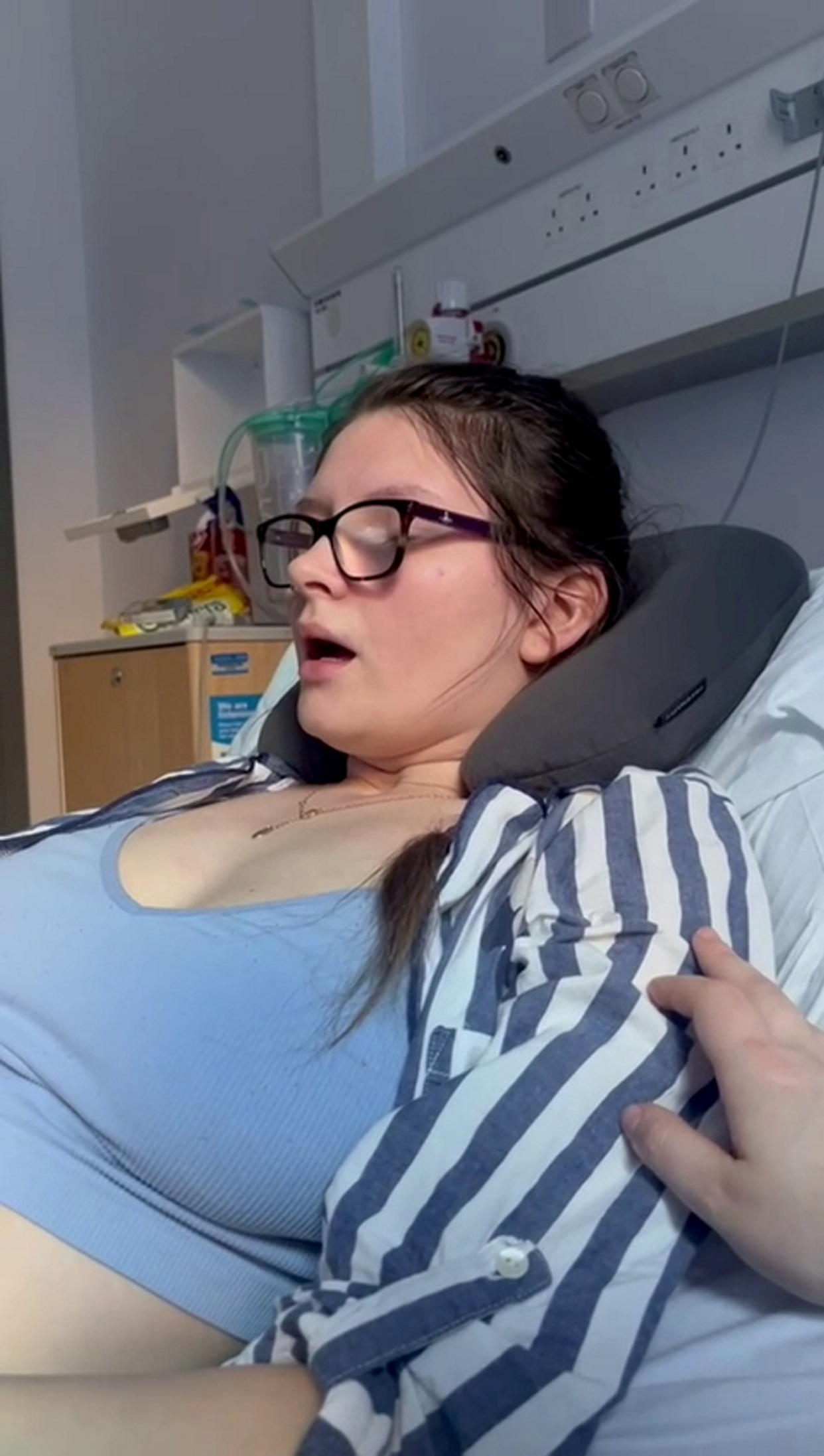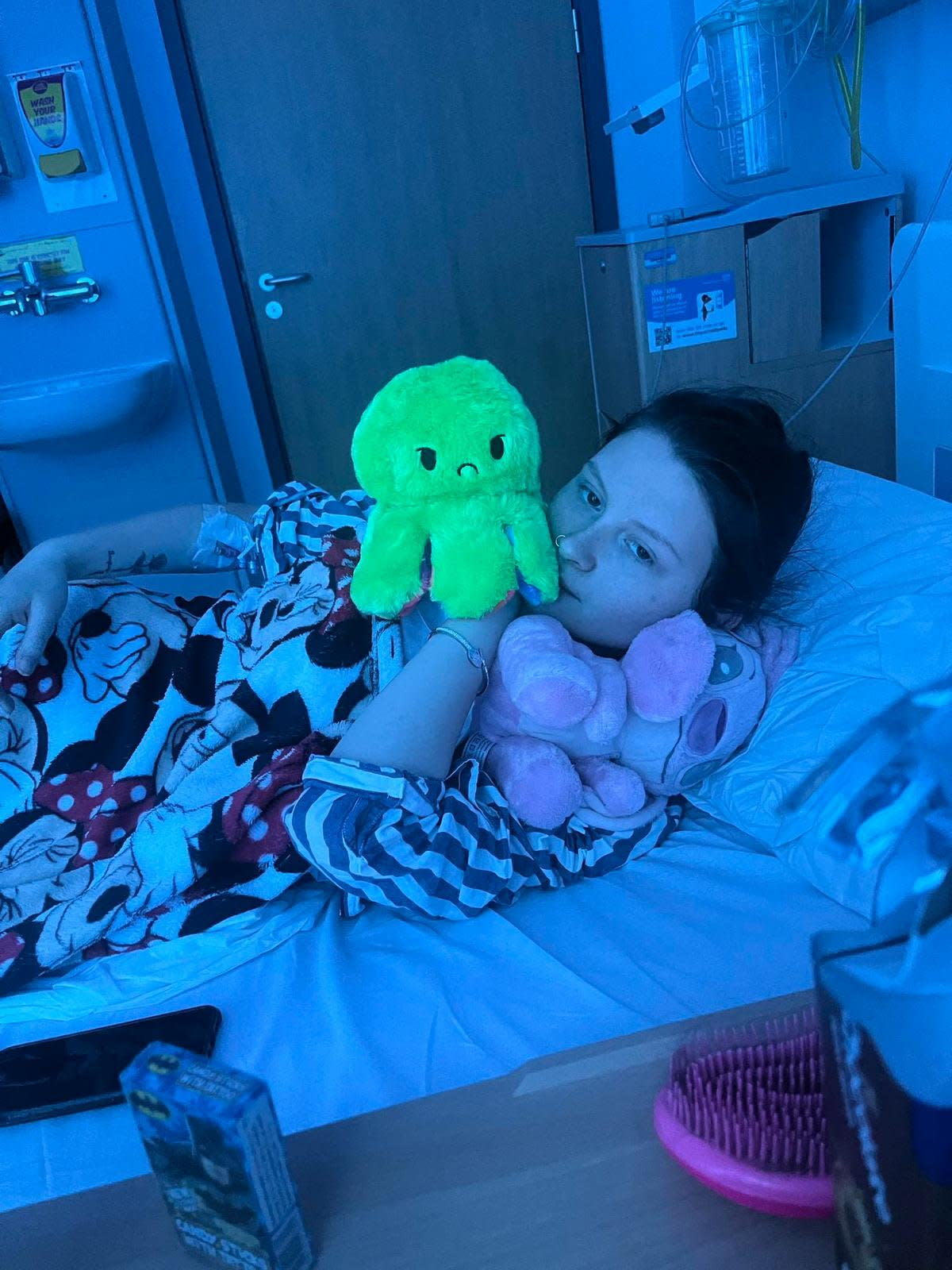‘The pressure of money left me unable to walk and speak’
See: A woman shares how stress about money caused a rare neurological condition
A woman has told how she believes stress over her money has caused a rare neurological condition, which has left her unable to walk or speak.
Danni Cooper, 21, from Wakefield, Yorkshire, had been struggling financially for months before she lost the use of her legs and was rushed to hospital.
He first realized something was wrong in April 2024 when he started feeling dizzy after returning from work, but put his symptoms down to being full.
However, when she struggled to get into the kitchen, she called her sister Mollie Harris, 26, who took her straight to A&E.
Doctors initially thought she had a migraine made worse by her period, but the next morning Cooper woke up unable to walk or speak.
Fearing a stroke, he went to Pinderfields Hospital, Wakefield, but all his tests came back positive.


After spending a month in the ward, Cooper was finally diagnosed with neurodegenerative disease (FND) – a condition that causes problems with the brain’s ability to send and receive information.
Doctors who treated him believe that financial pressure caused by the cost of living may have contributed to his “out of the blue” symptoms.
Although Cooper’s speech returned after about a week, he still struggles to walk and needs a wheelchair for long distances.
“I was worried about money for a long time,” Cooper explains.
“The cost of health problems hit me hard and I had to choose between food and fuel to be able to work.
“I was depressed at one point, I cried every day and maybe that’s what caused it.
“FND is a bit like when a computer has too many tabs open, and it crashes.
“My brain shuts down and I stop communicating with my body.
“My life changed overnight.”


Cooper had suffered from migraines since he was young – two or three a month.
When he started his first job as a support assistant in April 2024, he thought he would get off with it.
After he got home, he felt “shaky and dizzy”, but made a point of not eating much that day.
“I lay in my bed and the room was spinning,” he recalls.
“I called my sister and she told me to make a sandwich and she’d be done.
But my legs felt like jelly when I went to the kitchen, and I was still shivering in her house.
arrive.”
After calling 111, Harris took Cooper to A&E.
Cooper recalls: “My sister had to support me because I couldn’t walk.
“Look [doctors] it said that menstruation makes migraines worse, and I was sent home with strong ibuprofen.”


The next morning, Cooper woke up unable to walk or speak at all.
Her boyfriend, Oliver Spink, 22, stayed the night with her and called an ambulance, only to be told it was a migraine.
Cooper’s boyfriend took her back to A&E where she waited 14 hours to see a stroke nurse and was admitted that night for tests.
“Oliver had to help me bathe because I couldn’t use my hands,” says Cooper.
“I lost my speech for a week, and I had to type on my phone.
“It was very scary because no one knew what was wrong.”


After performing an MRI, CT scan, and electroencephalogram (EEG) – a test that measures electrical activity in the brain – doctors ruled out stroke and the neurological condition multiple sclerosis.
Cooper spent the next month in Pinderfields Hospital, until a doctor finally diagnosed him with FND.
Symptoms can vary from person to person, but can include hand weakness, numbness, tremors, facial tremors, and problems with speaking and swallowing.
“Doctors think it may have been caused by stress,” Cooper explains.
“I was very stressed about money and I had been depressed.
While he said it was good to find out that FND is a lifelong condition that Cooper is dealing with.
She explains: “Sometimes I feel better, but it can get worse and it always will.


Although he regained his ability to speak and walk, he still uses a cane or a wheelchair to walk.
He also has tremors and had to move the house to a simpler building.
“I am slowly building up my strength so that I can regain my independence and hopefully start driving again,” he says.
“Not all disabilities are visible, and I get funny looks for wearing a blue badge sometimes.
“Many doctors still don’t know what FND is.
“It’s a little-known situation but I hope I can help raise awareness.”


What is Functional Neurological Disorder (FND)?
Functional Neurological Disorder (FND) is defined as a disorder of the brain network by the charity FND Action.
Symptoms can be debilitating and include:
-
organ failure
-
to be disabled
-
accident
-
mobility problems
-
spasms
-
nervous
-
sensory issues
Although the symptoms may appear similar to those seen in neurological conditions including Multiple Sclerosis, Parkinson’s and Epilepsy, the charity says it has a different cause.
With FND the basic wiring of the nervous system works, but there is a problem with how the brain/nervous system works, and how the brain fails to send and/or receive messages (messages) correctly.
This can affect how the body responds to various tasks such as controlling movement and attention.
The charity explains that the current understanding is that physical, psychological and social factors can contribute to a person’s vulnerability to developing FND, but further research is underway to get a clearer picture. of causes.
Due to the different symptoms of FND treatment plans can vary and there is no ‘one fix will fix all’ option.
Historically the only form of treatment offered to those diagnosed with FND was psychotherapy given under the false impression that emotions were ‘translated’ into physical symptoms. Different treatment options are becoming more available, such as specialized physiotherapy for movement/motor symptoms.
Additional SWNS report.
Read more about health and wellness:
#pressure #money #left #unable #walk #speak
